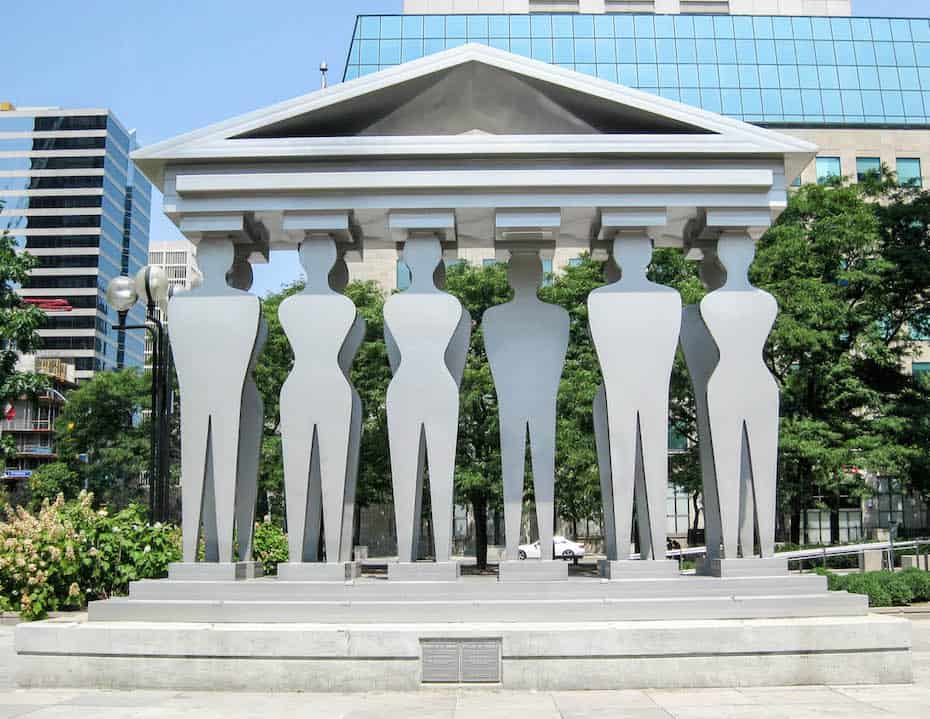“It is better that ten guilty persons escape than one innocent suffer.” These words, known as Blackstone’s principle, have guided Anglo-American law for over two centuries.
It is a legal principle that transcends law and has also influenced social norms, and deservedly so. Though today there exists an epidemic of sexual violence on college campuses, this is not sufficient reason to discard a principle that has saved untold thousands from undeserved punishment, from both the judiciary and the masses.
A recent opinion piece in The Varsity argued that the presumption of innocence, fair as it may be for criminal proceedings, should not apply “in the court of public opinion,” and serves only to hurt survivors and blame victims. Is this truly the case? Must there not be at least some threshold of evidence, lest every claim and accusation of wrongdoing, no matter its probability or triviality, be worthy of belief? Certainly the presumption of innocence is as valuable a practice in the court of public opinion as it is in a court of law, namely in avoiding mass hysteria and its ugly consequences.
Conor Friedersdorf in The Atlantic has outlined an alternative to the unfair and unnecessarily adversarial binary of believing survivors vs. being a rape apologist. He argues that in cases of sexual assault there are varying duties of belief one may have, depending on one’s proximity to the crime in question and relationships with the accuser and accused. Both parties should be able to trust friends and family to believe their version of events. Additionally, someone making a rape claim deserves to be trusted by the trauma counselors and doctors whom they may seek.
But law enforcement, other investigators, and journalists have a duty to search for truth, wherever it may take them, and in the name of fairness must apply a presumption of innocence towards the accused until the evidence proves otherwise. The rest of us, jurors for the court of public opinion, ought to reserve judgment until all relevant evidence has been presented. In the case that the truth cannot be established, we should humbly conclude that we simply do not know what did or did not happen, and thus maintain our presumption that the accused is innocent.
This alternative allows for both compassion and nuance; survivors can be believed without an undue public bias being fostered against the merely accused. This surely is preferable since it has been shown countless times that any allegation of sexual assault, due to the scandalous and heinous nature of the crime, can bring immediate celebrity to an accuser and lifelong infamy — or worse — to the accused.
Where does this leave the universities? With the resources available, they should focus on prevention and counseling. Supervision (in the form of separating accusers and accused so they do not have to share common classrooms and residences) may also be an appropriate complement, but ideally the responsibilities of investigation and punishment ought to be left to law enforcement.
This is because sexual assault, like all crimes, is not only an offence against an individual but also an affront to society. To commit any crime is to violate the social contract that makes civilized community possible. Accordingly, when a convicted criminal is punished, they are at the mercy of the monopoly of power that is the government.
The object of the presumption of innocence, in the context of criminal law, is to ensure that only those who have been proven to have truly betrayed society beyond a reasonable doubt will ever be subjected to such overwhelming force. There exists no class of victim, or crime so heinous that it should convince us to remove the presumption of innocence in a court of law.
This remains true, however, in the court of public opinion. The stakes are no doubt lower, but the value of a person’s reputation and financial livelihood should not be discounted. We need only look to this past November to understand the consequences of the public believing survivors by presuming the guilt of the accused there are, of course, other examples as well.
None of this denies that sexual assaults happen. Sexual assault occurs every day and survivors should be both believed and thoroughly supported by victims’ services in addition to their friends and loved ones. Survivors should be encouraged to come forward at their own discretion, and perpetrators should be made to face justice in criminal, civil, and public opinion courts. But when an accusation is made against an individual, that person deserves a presumption of innocence. Without it, we risk creating more victims.
Emmett Choi is a fifth year student at Victoria College studying philosophy and American Studies.


